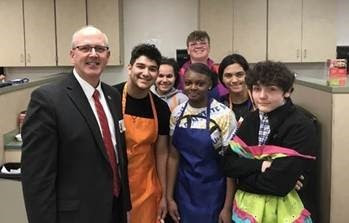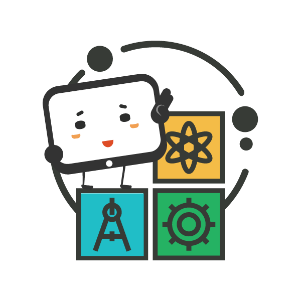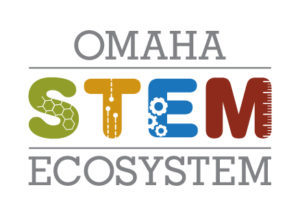
STEM Education Updates from the U.S. Department of Education
Welcome to the Official U.S. Department of Education STEM Education Newsletter! This informative newsletter builds off the great work that Patti Curtis, Robert Noyce/Ellen Lettvin STEM Fellow, began a few months ago via her STEM Fellow Update Newsletter. To build upon the Update’s foundation, the goals of this new STEM Education Newsletter are to increase the Department’s audience and reach and better serve and communicate with our STEM stakeholders.
Once a month, the Department (ED) will highlight opportunities, events, news, and other information relevant to the STEM community and to our stakeholders. The Department will also maintain resources on its STEM landing page, including funding opportunities and archives of monthly STEM briefings. You can manage your subscription HERE and we encourage you to invite your colleagues and friends to sign up as well!
The Department welcomes your feedback and questions. Please feel free to share them at stem@ed.gov.
Thank you,
Jean Morrow
STEM Lead, U.S. Department of Education
“This Administration continues to make strategic investments in STEM education and is working to ensure that all Americans access to high-quality STEM education no matter where they are in their life-long learning journeys” said U.S. Secretary of Education Betsy DeVos. “I’m thankful to the President for his leadership on this issue and his commitment to the success of all of America’s students.”
Leadership STEM Travel and Career and Technical Education Month
2019 was an exciting year at the Department (go here to see Secretary DeVos’ video). Earlier this year, Office of Elementary and Secondary Education (OESE) Assistant Secretary Frank Brogan, visited three Louisiana schools, including Lee Magnet High School that is a part of LSU’s STEM Pathways Program.
February is Career and Technical Education (CTE) Month! CTE provides students with valuable, specialized skills that directly prepare them for future employment. Read more about this Administration’s commitment to CTE by going here. Office of Career, Adult, and Technical Education Assistant Secretary Scott Stump visited Whiteland Community High School, a CTE-rich learning environment where students are actively test driving the skills and career paths that interest them. Watch Scott’s video by going here. For ideas on how to celebrate CTE month visit here or Tweet at #CTEMonth or #CTE. See also this tweet from the Secretary about CTE and this one about federal work study.
Recap of Fiscal Year 2019 Funding
The Department announced on National STEM Day (11/8/19) that it invested $540 million to support science, technology, engineering and math (STEM) education, including computer science, through discretionary and research grants in Fiscal Year 2019, in accordance with President Trump’s directive to foster expanded opportunities in these in-demand career fields.
These funds deliver on the Administration’s promise to support STEM education, as well as on the overall goals of the five-year federal STEM education strategic plan entitled Charting A Course For Success: America’s Strategy for STEM Education. The Department continued to support the Plan’s vision for a future where all Americans will have lifelong access to high-quality STEM education and the United States will be the global leader in STEM literacy, innovation, and employment. To read more, go here.
Open Opportunities at the Department in Fiscal Year 2020
The Department is actively preparing for a robust Fiscal Year 2020 competitive grant season. The Department has already issued a few competitive/discretionary grant opportunities with a STEM competitive preference priority or may of be of interest to the STEM community. Click on the links below to find out more about the requirements and deadlines. Over the coming months, please stay tuned to this newsletter and the STEM landing page for more details.
- Native American-Serving Nontribal Institutions (NASNTI) Program CFDA Number 84.031X – applications due by 3/6/20
- Expanding Opportunity Through Quality Charter Schools Program (CSP)-Grants to State Entities CFDA Number 84.282A – applications due by 4/13/20
- ED/IES Small Business Innovation Research (SBIR) Phase I program – applications due by 3/3/20
Call for Peer Reviewers
The Department recently issued a new toolkit, entitled, “How to be considered as a Peer Reviewer for programs administered by The Department”. The Department uses outside peer reviewers to review discretionary grant applications, including STEM competitions. Please consider being a high-quality STEM or Computer Science reviewer.
Fiscal Year 2020 Education Budget Recap
On December 20, 2019 the President signed two minibus appropriations bills to fund the Federal Government for the remainder of Fiscal Year 2020, which runs through September 30, 2020. For the Department of Education, the bill provides a total of $72.8 billion in discretionary appropriations, including the following of interest to the STEM community:
- 4% increase to Supporting Effective Instruction (Title IIA) – $2.1 billion;
- 3% increase to Student Support and Academic Enhancement grants (Title IVA) – $1.22 billion;
- 2% increase to the newly renamed Nita A. Lowey 21st Century Community Learning Centers (Title IVB) – $1.2 billion;
- 2% increase to Career & Technical Education (CTE) State grants – $1.3 billion;
- 46% increase to Education Innovation & Research (EIR) – $190 million;
- 4% increase to Ready to Learn programming – $29 million;
- 6% increase to the Supporting Effective Educator Development (SEED) program to include social emotional learning (SEL) professional development – $80 million;
- 16% increase for the Teacher Quality Partnership (TQP) – $50.1 million;
- 8% increase to Gaining Early Awareness and Readiness for Undergraduate Programs (GEAR UP) – $65 million; and,
- 6% increase to the Minority Serving & Engineering Improvement Program (MSEIP) – $12.6 million.
The ED budget also included level funding or marginal increases for the following:
- Teacher & School Leader Incentive grants – $200 million;
- Magnet Schools Assistance – $107 million;
- Arts in Education – $30 million;
- Javitz Gifted & Talented – $13 million
- Statewide Family Engagement Centers – $10 million; and
- Graduate Assistance in Areas of National Need (GAANN) – $23 million.
2021 President Budget Request Released
The U.S. Department of Education earlier this week released the Administration’s budget request for the 2021 fiscal year. The budget builds upon President Donald J. Trump’s commitment to expand educational freedom for all families and return power to local leaders. “This budget proposal is about one thing—putting students and their needs above all else,” said Secretary of Education Betsy DeVos. “Our budget puts an end to education earmarks. Instead of Washington politicians and bureaucrats forcing local schools to spend limited resources on D.C.’s priorities, this budget proposes putting state and local leaders, teachers, parents, and students themselves in control of education.”
Budget materials can be found here.
STEM Education Briefings, hosted by Patti Curtis, Robert Noyce/Ellen Lettvin Fellow
The STEM Education Briefings are live-streamed and archived for your convenience. Here is the scheduled briefings to date for 2020:
- January 22 – STEAM: Arts Supporting STEM
- February 4, 10am – STEM After School
- March 26, 2pm – Early Math
- April 28, 10am – STEM Competitions
- May 26, 2 PM – Cyber Education
- June 24, 2PM – STEM Teacher Prep
To attend future briefings, please RSVP to Patti.Curtis@ed.gov.
Department Announcements
Secretary DeVos Appoints New Members to National Assessment Governing Board
U.S. Secretary of Education Betsy DeVos recently appointed former governor Haley Barbour, PK-8 engineering curriculum specialist, Christine Cunningham (the October 2019 STEM Briefing guest speaker) and twelfth-grade U.S. government and politics teacher, Patrick Kelly, to four-year terms on the National Assessment Governing Board, which oversees the only continuing, nationally representative evaluation of U.S. students’ knowledge. The Governing Board is a nonpartisan body that works independently from the U.S. Department of Education to set policy for the National Assessment of Educational Progress (NAEP), also known as The Nation’s Report Card. Secretary DeVos said, “Their richly diverse backgrounds will help the Board as it continues its critical work to inform students, parents, educators and policymakers about the state of American education.” More here.
Civil Rights Center
Secretary DeVos announced that the Department’s Office for Civil Rights (OCR) will launch the Outreach, Prevention, Education, and Non-Discrimination (OPEN) Center to focus on proactive compliance with federal civil rights laws. The OPEN Center will assist and support schools, educators, families, and students to elevate awareness of the protections and requirements of federal nondiscrimination laws. The OPEN Center will be led and staffed by OCR attorneys. Inquiries may be sent to OPEN@ed.gov.
STEMIE Launches STEM4EC Community
The STEM4EC community is an initiative of the STEM Innovation for Inclusion in Early Education (STEMIE) national center. The Center has started the community as a way to engage you in exchanging ideas, personal narratives, and questions about including young children with disabilities in STEM learning. Whether you are an early childhood (EC) or EC special education practitioner, faculty, family member of a child with disabilities, or a STEM industry professional, this community may be of interest to you. Visit STEM4EC.
Attract, Prepare, Retain Effective Educators Summit
The Department’s Office of Special Education Programs (OSEP) will livestream its “Attract, Prepare, and Retain: OSEP National Summit on Improving Effective Personnel for Children with Disabilities” on March 19 from 1:00 to 5:00 p.m. ET. Details related to live stream access will be available closer to the summit date.
Community Colleges
March 19 and 20, 2020, at the Community College of Denver, the Department and the American Association of Community Colleges will co-host another convening designed to help rural community colleges identify, plan, and design critical projects for federal grant applications. The content of this convening is the same as the past offerings in Racine, Wisconsin, and Gulfport, Mississippi.
Other Federal Agency Opportunities for STEM Stakeholders
National Science Foundation (NSF)
NSF recently announced that the NSF Computer Science for All (CSforAll: Research and RPPs) is now open for stakeholders to apply for. Click here to learn more.
USPTO Women’s Entrepreneurship Symposium
This FREE, half-day event on March 3rd will focus on women inventors and provide information on the available resources and services to assist and support women inventors and entrepreneurs. For questions or assistance, please send an email to WES@USPTO.GOV. The symposium will take place at the USPTO headquarters in Alexandria, Virginia. More info.
Women in Tech Summits
To celebrate International Women’s Day, Google is hosting a series of regional Women in Tech summits. These summits recognize women in technology by featuring speakers, workshops, and the opportunity to connect with fellow industry professionals. The goal is to create spaces where Women in tech can find community, inspiration, and empowerment. Learn more and apply today.
USFWS Career Discovery Internship Program
The U.S. Fish and Wildlife Service (USFWS) is partnering with the Student Conservation Association to recruit approximately 30 students from culturally and ethnically diverse backgrounds for paid internships during the summer of 2020. Interns will attend a week-long orientation at the National Conservation Training Center followed by 12 weeks of experiential learning at national wildlife refuges across the U.S. — from Alaska to the Southwest, Midwest, Southeast, and Northeast. Areas of focus will include visitor services, biology, refuge management and more. More here.
The Educational Testing Service’s Summer Research Internship Program
Educational Testing Service (ETS) is a major service provider to the National Assessment of Educational Progress (NAEP) program for the National Center of Education Statistics (NCES) within the U.S. Department of Education and the Institute of Education Sciences. ETS is seeking applicants for the National Assessment of Educational Progress 2020 Summer Research Internships. Interns will be exposed to and will contribute to NAEP’s educational assessment efforts and innovations. They will also attend professional development seminars during their eight-week experience and present their findings at a company-wide symposium. Questions? Contact: NAEPInternships@ETS.Org.
U.S. Department of Energy Opportunity
Join the U.S. Department of Energy’s Idaho National Laboratory for a virtual field trip launching February 18. The Idaho National Lab is the nation’s center for nuclear energy research and development. Meet a few of the lab’s employees and learn how their research is changing the world’s energy future. Engage students in lessons and activities using the Virtual Field Trip Educator Guide. Visit www.navigatingnuclear.com for nuclear education resources. Send an email to stem-ne@nuclear.energy.gov for more information.
New Resources
ED Unveiled New and Improved College Scorecard
In late 2019, the Department recently rolled out the newly updated and expanded College Scorecard, a tool that provides students more information than ever before as they make decisions about the next steps in their lifelong learning journeys.
The new College Scorecard was expanded to include potential debt and future earnings information based on what a student wants to study (including two-year programs, four-year degrees, certificate programs, and graduate programs), graduation rates, and even apprenticeships. Using College Scorecard’s comparison tool, students can compare up to ten different school options and see how they stack up.
An online video allows users to see the newly updated features of the College Scorecard.
Digest of Education Statistics 2018
The Digest of Education Statistics 2018, from NCES is the 54th in a series of publications initiated in 1962. Its primary purpose is to provide a compilation of statistical information covering the broad field of American education — from pre-kindergarten through graduate school — drawn from government and private sources, but especially from surveys and other activities led by NCES. The digest has data on the number of schools, students, and teachers in the U.S., as well as statistics on educational attainment, finances, libraries, technology, and international comparisons.
Enhancing STEM in P-3 Education
The Education Commission of the States released a new report on early childhood STEM education. It contains several policy considerations for state and local education officials.
Digital Learning Report
Project Tomorrow issued a recent report examining the use of technology in classrooms. Key findings how students are using technology in school and out of school to support learning and the differences in how students and educators view the value proposition around digital learning. Additionally, we examined three top concerns – parents’ worries about too much screen time, teachers’ effectiveness with using technology, and the Homework Gap as a representation of technology equity



[…] U.S. accredited universities. Aside from this, the Department of Education has invested $540 million in K-12 and collegiate level STEM programs. Make sure to share these avenues of assistance with your students and their […]